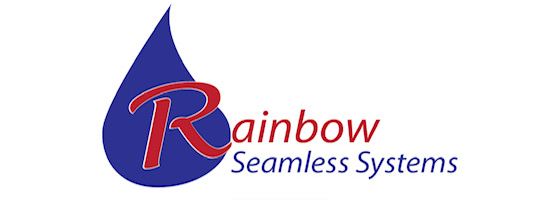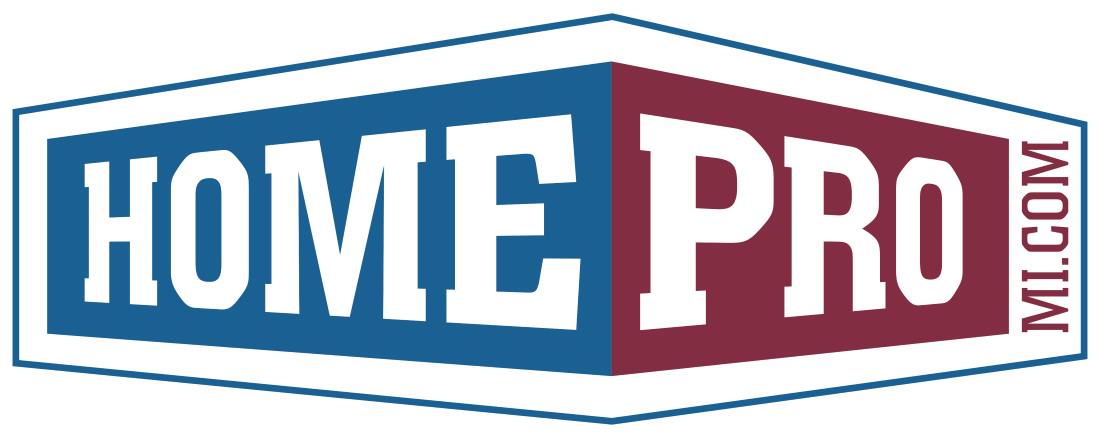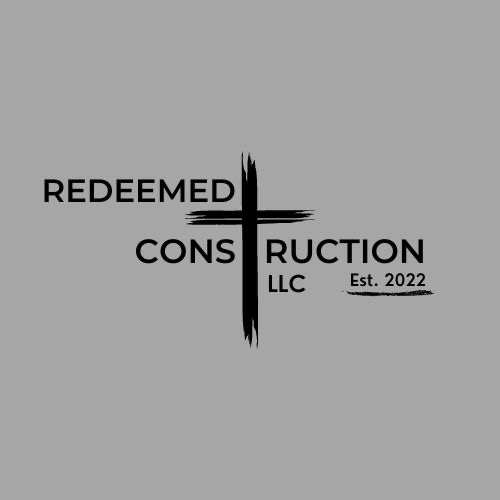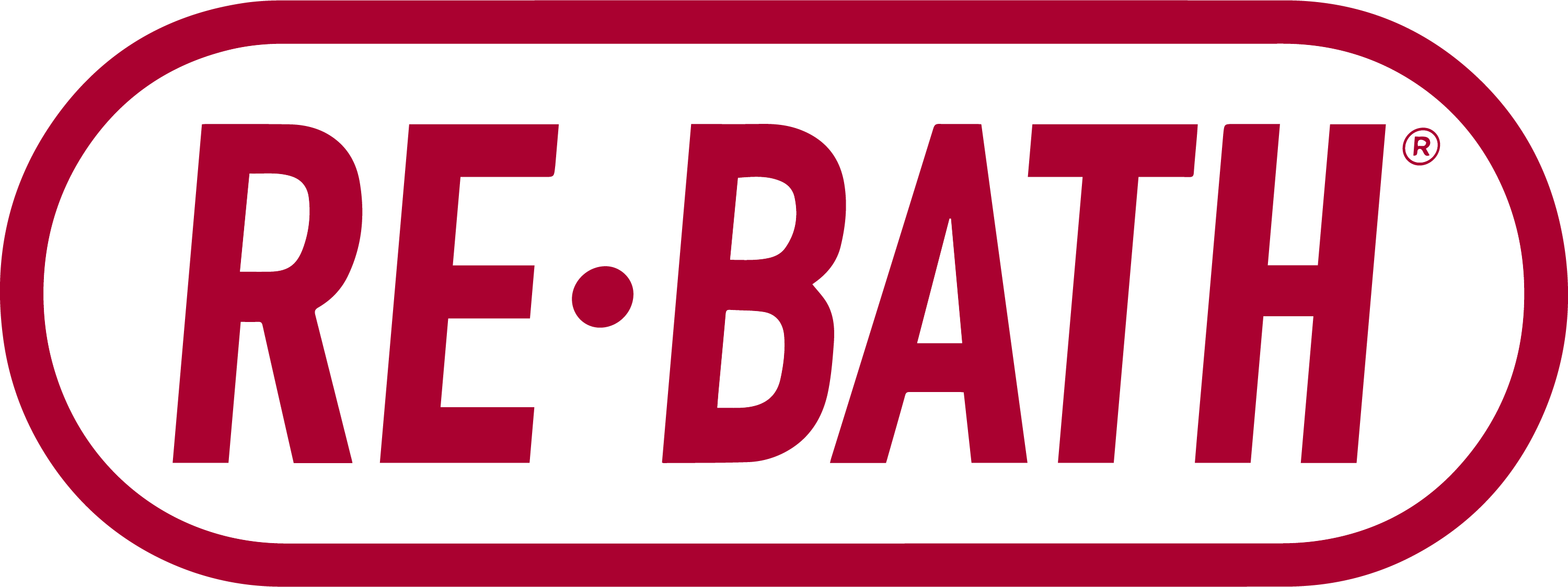
Get matched with top sewer line repair pros in Rapid City, MI
Enter your ZIP and get matched with up to 5 pros
Need a pro for your sewer line repair project in Rapid City, MI?
TRUSTED BY RAPID CITY, MI HOMEOWNERS
4.6
Average homeowner rating65
Verified sewer line repair services reviews
Verified Reviews for Sewer Line Repair pros in Rapid City, MI
*The Angi rating for Sewer Line Repair companies in Rapid City, MI is a rating based on verified reviews from our community of homeowners who have used these pros to meet their Sewer Line Repair needs.
*The HomeAdvisor rating for Sewer Line Repair companies in Rapid City, MI is a rating based on verified reviews from our community of homeowners who have used these pros to meet their Sewer Line Repair needs.
Last update on December 02, 2025
Find Sewer line repair pros in Rapid City

Rainbow Seamless System, Inc
Rainbow Seamless System, Inc
A Family owned and locally operated business serving Northern Michigan for over 35 years! We specialize in Gutter Helmet, Seamless Gutters and Jacuzzi Bath Remodels! We have offices and showrooms in Petoskey and Traverse City, Michigan.
"The project from estimate to completion was on time and very efficient. My project wasn’t a big one but it was treated like it was the most important thing on their list. I really appreciated that. I contacted Adam to start the project, He sent Cory out to look at it, I got the estimate very quickly and Brady contacted me as to when he would be there to do the work. He was there and done before I got home. I knew he had been there, because my gutters were straight and very nice! Also, when I stopped in the office to pay my bill, Adam, Cory and Tyler were in the office very personable and very friendly bunch. I highly recommend this company if you need gutter, work, awnings or custom showers."
Kathy M on August 2023
A Family owned and locally operated business serving Northern Michigan for over 35 years! We specialize in Gutter Helmet, Seamless Gutters and Jacuzzi Bath Remodels! We have offices and showrooms in Petoskey and Traverse City, Michigan.
"The project from estimate to completion was on time and very efficient. My project wasn’t a big one but it was treated like it was the most important thing on their list. I really appreciated that. I contacted Adam to start the project, He sent Cory out to look at it, I got the estimate very quickly and Brady contacted me as to when he would be there to do the work. He was there and done before I got home. I knew he had been there, because my gutters were straight and very nice! Also, when I stopped in the office to pay my bill, Adam, Cory and Tyler were in the office very personable and very friendly bunch. I highly recommend this company if you need gutter, work, awnings or custom showers."
Kathy M on August 2023

Home Pro of West Michigan LLC
Home Pro of West Michigan LLC
At Home Pro of West Michigan LLC our business thrives on quality and integrity. With over 30 years of experience, we are experts in the construction trade specializing in Wet Area replacement, Windows and Doors. We are family-owned and our business is built on trust, integrity, and quality workmanship. We pride ourselves on completing work in a timely, efficient manner as well as creating a safe working environment for our employees. At Home Pro of West Michigan we go the extra mile to ensure our clients can give their home the care it needs without breaking your budget with competitive prices and financing options. Contact us today for a free estimate. We look forward to earning your business!
"Work has not been done yet but so far every one has been wonderful"
Cheryl M on February 2025
At Home Pro of West Michigan LLC our business thrives on quality and integrity. With over 30 years of experience, we are experts in the construction trade specializing in Wet Area replacement, Windows and Doors. We are family-owned and our business is built on trust, integrity, and quality workmanship. We pride ourselves on completing work in a timely, efficient manner as well as creating a safe working environment for our employees. At Home Pro of West Michigan we go the extra mile to ensure our clients can give their home the care it needs without breaking your budget with competitive prices and financing options. Contact us today for a free estimate. We look forward to earning your business!
"Work has not been done yet but so far every one has been wonderful"
Cheryl M on February 2025

Bathworks of Michigan, LLC
Bathworks of Michigan, LLC
A Trusted Partner for Bathroom Remodeling in Michigan! As a leading name in Grand Rapids bath remodels, BathWorks offers a range of services that combine gorgeous products with daily functionality. Whether you need a shower conversion or a complete bathroom overhaul, we deliver results you'll love tailored to your unique needs. If your bathing area isn't working for you, we can replace or convert it into a stunning, low-maintenance tub or shower. Our one-day wet-area upgrades ensure minimal disruption to your daily life while delivering maximum impact to your bathroom. Looking for a complete bathroom transformation? We also offer floor-to-ceiling remodels to give your bathroom a completely new look and feel. Ready to begin your bathroom makeover? Contact BathWorks today! Based in Grand Rapids, MI, we proudly serve homeowners throughout Michigan with expert craftsmanship and personalized service.
"Explained everything well. Walked us through design. Good job explaining limitations with the project and managing expectations. Sales guy was very patient and friendly."
Kate E on February 2025
A Trusted Partner for Bathroom Remodeling in Michigan! As a leading name in Grand Rapids bath remodels, BathWorks offers a range of services that combine gorgeous products with daily functionality. Whether you need a shower conversion or a complete bathroom overhaul, we deliver results you'll love tailored to your unique needs. If your bathing area isn't working for you, we can replace or convert it into a stunning, low-maintenance tub or shower. Our one-day wet-area upgrades ensure minimal disruption to your daily life while delivering maximum impact to your bathroom. Looking for a complete bathroom transformation? We also offer floor-to-ceiling remodels to give your bathroom a completely new look and feel. Ready to begin your bathroom makeover? Contact BathWorks today! Based in Grand Rapids, MI, we proudly serve homeowners throughout Michigan with expert craftsmanship and personalized service.
"Explained everything well. Walked us through design. Good job explaining limitations with the project and managing expectations. Sales guy was very patient and friendly."
Kate E on February 2025

Redeemed Construction LLC
Redeemed Construction LLC
At Redeemed, we specialize in making your house into a place you want to call home through our various abilities in remodels, repairs, and new builds! We are an owner-operated business with the owner on every job to ensure quality and integrity. Redeemed Construction LLC is licensed and insured in the state of Michigan.
"Andrew and Sam did an amazing job building a room for our son! We are so impressed. Andrew was an amazing communicator, showed up, and he has a standard of excellence. My family and I would highly recommend him!"
Melody A on November 2025
At Redeemed, we specialize in making your house into a place you want to call home through our various abilities in remodels, repairs, and new builds! We are an owner-operated business with the owner on every job to ensure quality and integrity. Redeemed Construction LLC is licensed and insured in the state of Michigan.
"Andrew and Sam did an amazing job building a room for our son! We are so impressed. Andrew was an amazing communicator, showed up, and he has a standard of excellence. My family and I would highly recommend him!"
Melody A on November 2025

Rainbow Seamless Systems, Inc.
Rainbow Seamless Systems, Inc.
Rainbow Seamless Systems, Inc. has been Northern Michigan’s trusted choice for seamless rain gutters and custom bathroom remodeling since 1987. As a family-owned business spanning three generations, we take pride in delivering high-quality craftsmanship and exceptional service. We offer one-day bath remodels, walk-in showers, and tub-to-shower conversions with premium products like Jacuzzi. Our seamless gutters are custom-fit and maintenance-free, with Gutter Helmet protection to prevent clogs and extend the life of your home’s exterior. With offices and showrooms in Petoskey and Traverse City, you can visit us to explore our products, see our craftsmanship firsthand, and speak with our experts. We are committed to providing top-tier installations that enhance your home's beauty, functionality, and value. Free estimates are available. Contact us today to schedule your consultation and discover why homeowners have trusted us for over 38 years.
"The gutter install crew: Alex, Colin and Ethan were efficient, professional, and polite. They did a great job. Meets all our expectations. Also, Alex advised us on further drainage options to consider. "
Tom S on July 2025
Rainbow Seamless Systems, Inc. has been Northern Michigan’s trusted choice for seamless rain gutters and custom bathroom remodeling since 1987. As a family-owned business spanning three generations, we take pride in delivering high-quality craftsmanship and exceptional service. We offer one-day bath remodels, walk-in showers, and tub-to-shower conversions with premium products like Jacuzzi. Our seamless gutters are custom-fit and maintenance-free, with Gutter Helmet protection to prevent clogs and extend the life of your home’s exterior. With offices and showrooms in Petoskey and Traverse City, you can visit us to explore our products, see our craftsmanship firsthand, and speak with our experts. We are committed to providing top-tier installations that enhance your home's beauty, functionality, and value. Free estimates are available. Contact us today to schedule your consultation and discover why homeowners have trusted us for over 38 years.
"The gutter install crew: Alex, Colin and Ethan were efficient, professional, and polite. They did a great job. Meets all our expectations. Also, Alex advised us on further drainage options to consider. "
Tom S on July 2025

North Creek Construction & Renovation
North Creek Construction & Renovation
At North Creek, we bring experience since the early 2000's ranging from new builds to full remodels. It’s our goal to make your project come to life. We offer services for kitchens, basements, bathrooms, tile work, general carpentry and much more! We take a personalized approach to each project. We work closely with our clients to understand their vision, preferences, and budgetary requirements. We strive to exceed expectations by delivering exceptional service, great quality work, and professionalism on every job. Read more below on all the services we offer and contact us with any questions or to schedule a free estimate today!
"Kirk did fantastic work in my kitchen back in August, he and his crew were done when he said he was going to be and communicated with me every step of the way. He and his crew were very professional and answered every question I had. I'd recommend him to anyone looking for work done around the house."
Devyn D on December 2024
At North Creek, we bring experience since the early 2000's ranging from new builds to full remodels. It’s our goal to make your project come to life. We offer services for kitchens, basements, bathrooms, tile work, general carpentry and much more! We take a personalized approach to each project. We work closely with our clients to understand their vision, preferences, and budgetary requirements. We strive to exceed expectations by delivering exceptional service, great quality work, and professionalism on every job. Read more below on all the services we offer and contact us with any questions or to schedule a free estimate today!
"Kirk did fantastic work in my kitchen back in August, he and his crew were done when he said he was going to be and communicated with me every step of the way. He and his crew were very professional and answered every question I had. I'd recommend him to anyone looking for work done around the house."
Devyn D on December 2024
Mike Nichol General Contractor
Mike Nichol General Contractor
Integrity is not just a word to me its a way of life. I,m a hands on builder from start to Finish.My employee,s and subcontractors(Electrical,Plumbing,and Mechcanical) all take great pride in the quality professionalism of there work.We Offer free estimates. And peace of mind that it will be done right.
"Mike did a great job for us on both projects; we have recommended him to friends and neighbors, and those that have used him are all happy with the quality and delivery on the promise. I highly recommend Mike Nichol."
Lon O on September 2021
Integrity is not just a word to me its a way of life. I,m a hands on builder from start to Finish.My employee,s and subcontractors(Electrical,Plumbing,and Mechcanical) all take great pride in the quality professionalism of there work.We Offer free estimates. And peace of mind that it will be done right.
"Mike did a great job for us on both projects; we have recommended him to friends and neighbors, and those that have used him are all happy with the quality and delivery on the promise. I highly recommend Mike Nichol."
Lon O on September 2021

ReBath Metro-Detroit
ReBath Metro-Detroit
Bathrooms are all that we do, and we take great pride in it — which is why Re-Bath is the most trusted bathroom remodeling company in America. Don't wait — call us today at 248-577-0047!
"Professional; overall went very well"
Mikayla S on June 2024
Bathrooms are all that we do, and we take great pride in it — which is why Re-Bath is the most trusted bathroom remodeling company in America. Don't wait — call us today at 248-577-0047!
"Professional; overall went very well"
Mikayla S on June 2024

Diamondwood Inc
Diamondwood Inc
Located in Northern Michigan, Diamondwood, Inc. is a small construction company that brings expertise, knowledge and quality to every project. With 29 years of experience in the construction industry, we commit ourselves to providing quality craftsmanship, outstanding job completion, and superior customer service. The art of building a custom home requires precision planning and seamless coordination. We understand this, and our team of craftsmen have the expertise and professionalism to skillfully guide you through the entire process of building your dream home — on time and within budget. Our goal with each project is to exceed expectations and deliver finished products that stand the test of time, while ensuring that each client’s building experience is smooth, enjoyable and exceptional. To meet this standard of quality, we pride ourselves by taking on a select number of clients at a time; building relationships and maintaining open lines of communication with our clients; and personally supervising all of our project from start to finish, paying close attention to detail along the way. Some of our services include; new construction, additions, and remodeling and alterations. No matter the size of the project, Diamondwood, Inc. has the experience and in-depth knowledge to meet your goals.
"Dave and his crews were exceptional. They communicated clearly throughout the process, their pricing was fair, and they went above and beyond expectations. They have great integrity in their work. We would welcome you to come see the variety of work this project entailed from systems to finish work, exteriors and interiors, and how Diamondwood, Inc. handled each with quality."
Dawn R on May 2025
Located in Northern Michigan, Diamondwood, Inc. is a small construction company that brings expertise, knowledge and quality to every project. With 29 years of experience in the construction industry, we commit ourselves to providing quality craftsmanship, outstanding job completion, and superior customer service. The art of building a custom home requires precision planning and seamless coordination. We understand this, and our team of craftsmen have the expertise and professionalism to skillfully guide you through the entire process of building your dream home — on time and within budget. Our goal with each project is to exceed expectations and deliver finished products that stand the test of time, while ensuring that each client’s building experience is smooth, enjoyable and exceptional. To meet this standard of quality, we pride ourselves by taking on a select number of clients at a time; building relationships and maintaining open lines of communication with our clients; and personally supervising all of our project from start to finish, paying close attention to detail along the way. Some of our services include; new construction, additions, and remodeling and alterations. No matter the size of the project, Diamondwood, Inc. has the experience and in-depth knowledge to meet your goals.
"Dave and his crews were exceptional. They communicated clearly throughout the process, their pricing was fair, and they went above and beyond expectations. They have great integrity in their work. We would welcome you to come see the variety of work this project entailed from systems to finish work, exteriors and interiors, and how Diamondwood, Inc. handled each with quality."
Dawn R on May 2025

Neli Virtual Appliance Repair
Neli Virtual Appliance Repair
NEW! Appliance Consultation – Just $35 Get expert advice before you spend on repairs or replacements. A Neli technician will evaluate your issue and help you decide if your appliance can be fixed—or if it’s time for a new one. Virtual Appliance Diagnosis and Repair - Just $45 Service Description: Diagnose or repair your appliance virtually—no need for anyone to enter your home. Neli’s certified technicians guide you step-by-step via secure video chat. How It Works: Book online at nelihome.com or call 833-876-0900 Connect with a tech through our video platform Diagnose or fix the issue in real time Get expert advice and confidence in your next steps What’s Included: Real-time video guidance from a certified technician Diagnosis of the issue OR full repair (when possible) Step-by-step guidance using your smartphone or tablet Safe, contact-free service - no one in your home Flexible scheduling—appointments available daily Perfect For: Appliance fixes HVAC troubleshooting DIY-savvy homeowners Saving time and money on service calls
"Super helpful"
Michele H on November 2025
NEW! Appliance Consultation – Just $35 Get expert advice before you spend on repairs or replacements. A Neli technician will evaluate your issue and help you decide if your appliance can be fixed—or if it’s time for a new one. Virtual Appliance Diagnosis and Repair - Just $45 Service Description: Diagnose or repair your appliance virtually—no need for anyone to enter your home. Neli’s certified technicians guide you step-by-step via secure video chat. How It Works: Book online at nelihome.com or call 833-876-0900 Connect with a tech through our video platform Diagnose or fix the issue in real time Get expert advice and confidence in your next steps What’s Included: Real-time video guidance from a certified technician Diagnosis of the issue OR full repair (when possible) Step-by-step guidance using your smartphone or tablet Safe, contact-free service - no one in your home Flexible scheduling—appointments available daily Perfect For: Appliance fixes HVAC troubleshooting DIY-savvy homeowners Saving time and money on service calls
"Super helpful"
Michele H on November 2025
The Rapid City, MI homeowners’ guide to sewer line repair services
From average costs to expert advice, get all the answers you need to get your job done.
 •
•Discover the cost to replace drain pipes in a house, including average prices, key factors, and tips to save on your plumbing project.

Plumbing inspection costs depend on the issue you’re looking into and the size of your home. Learn what you can expect to pay.

The average cost to replace a bathroom faucet typically ranges from $170 to $360. Faucet installation costs often vary based on the selected fixture hardware.

Touchless faucets offer benefits like saving water, avoiding germs, and simplifying cleanup. Learn the top benefits of hands-free faucets and decide whether to switch.

Baking soda and vinegar are like two peas in a pod when it comes to clogs. Keep reading to learn how to unclog a sink with baking soda and vinegar.

If your tub stopper is ruining bathtime or it’s time for a new one, you can easily DIY the job. Keep reading to discover how to remove a bathtub drain stopper.
- Alden, MI Sewer line repair pros
- Williamsburg, MI Sewer line repair pros
- Kewadin, MI Sewer line repair pros
- Elk Rapids, MI Sewer line repair pros
- Bellaire, MI Sewer line repair pros
- Kalkaska, MI Sewer line repair pros
- Acme, MI Sewer line repair pros
- Mancelona, MI Sewer line repair pros
- South Boardman, MI Sewer line repair pros
- Central Lake, MI Sewer line repair pros
- Fife Lake, MI Sewer line repair pros
- Traverse City, MI Sewer line repair pros
- Garfield, MI Sewer line repair pros
- Mayfield, MI Sewer line repair pros
- Elmira, MI Sewer line repair pros
- Suttons Bay, MI Sewer line repair pros
- Kingsley, MI Sewer line repair pros
- Ellsworth, MI Sewer line repair pros
- East Jordan, MI Sewer line repair pros
- Grawn, MI Sewer line repair pros
- Cedar, MI Sewer line repair pros
- Lake Leelanau, MI Sewer line repair pros
- Frederic, MI Sewer line repair pros
- Northport, MI Sewer line repair pros
- Leland, MI Sewer line repair pros
- Grayling, MI Sewer line repair pros
- Manton, MI Sewer line repair pros
- Buckley, MI Sewer line repair pros
- Boyne City, MI Sewer line repair pros
- Lake Ann, MI Sewer line repair pros
- Roofing in Rapid City
- Tree Service in Rapid City
- Lawn And Yard Work in Rapid City
- Kitchen And Bath Remodeling in Rapid City
- Cleaning in Rapid City
- Exterior Painting in Rapid City
- Windows in Rapid City
- Mold Testing And Remediation in Rapid City
- Stone And Gravel in Rapid City
- Deck Maintenance in Rapid City
- Roof Ice And Snow Removal in Rapid City
- Septic Tank in Rapid City
- Fencing in Rapid City
- Mailbox Repair in Rapid City
- Electrical in Rapid City
- Asbestos Removal in Rapid City
- Painting in Rapid City
- Flooring in Rapid City
- Garage Doors in Rapid City
- Concrete Driveways in Rapid City
- Driveways in Rapid City
- Doors in Rapid City
- Pest Control in Rapid City
- Animal Removal in Rapid City
- Insulation in Rapid City
- Glass And Mirrors in Rapid City
- Landscaping in Rapid City
- Gas Leak Repair in Rapid City
- Energy Audit in Rapid City
- Contractor in Rapid City



